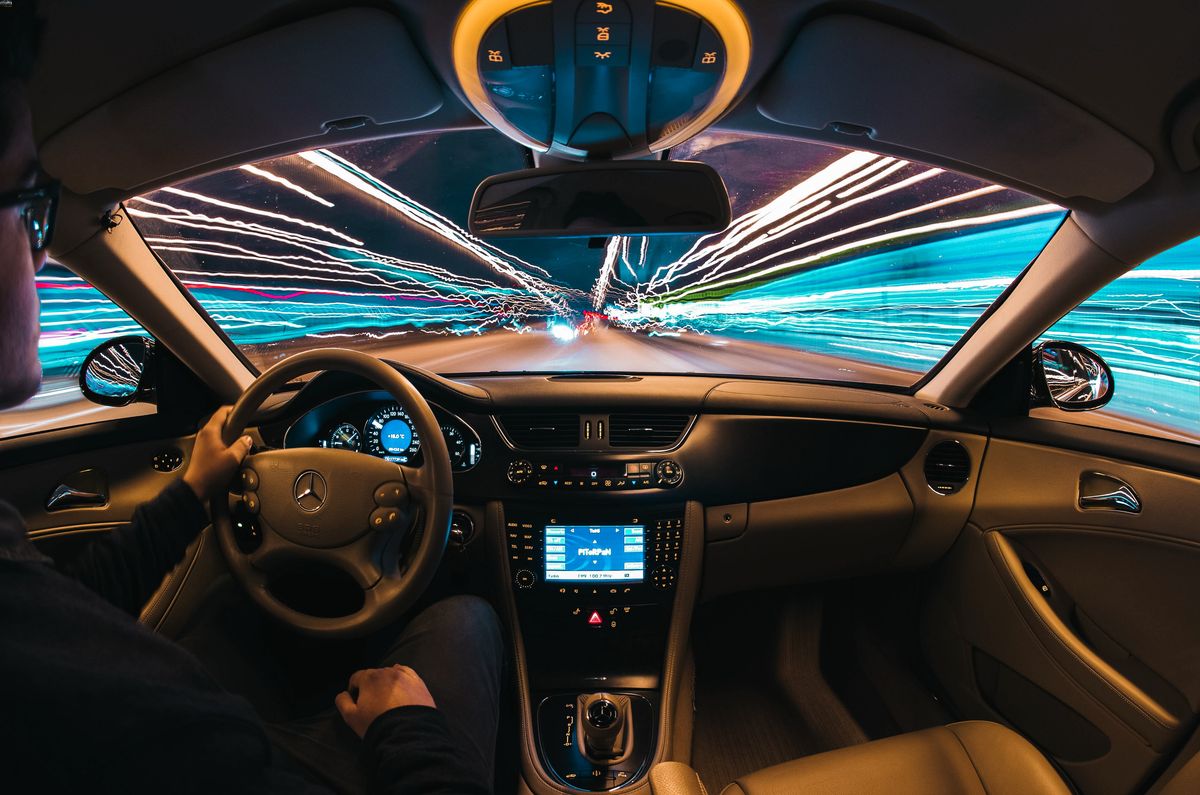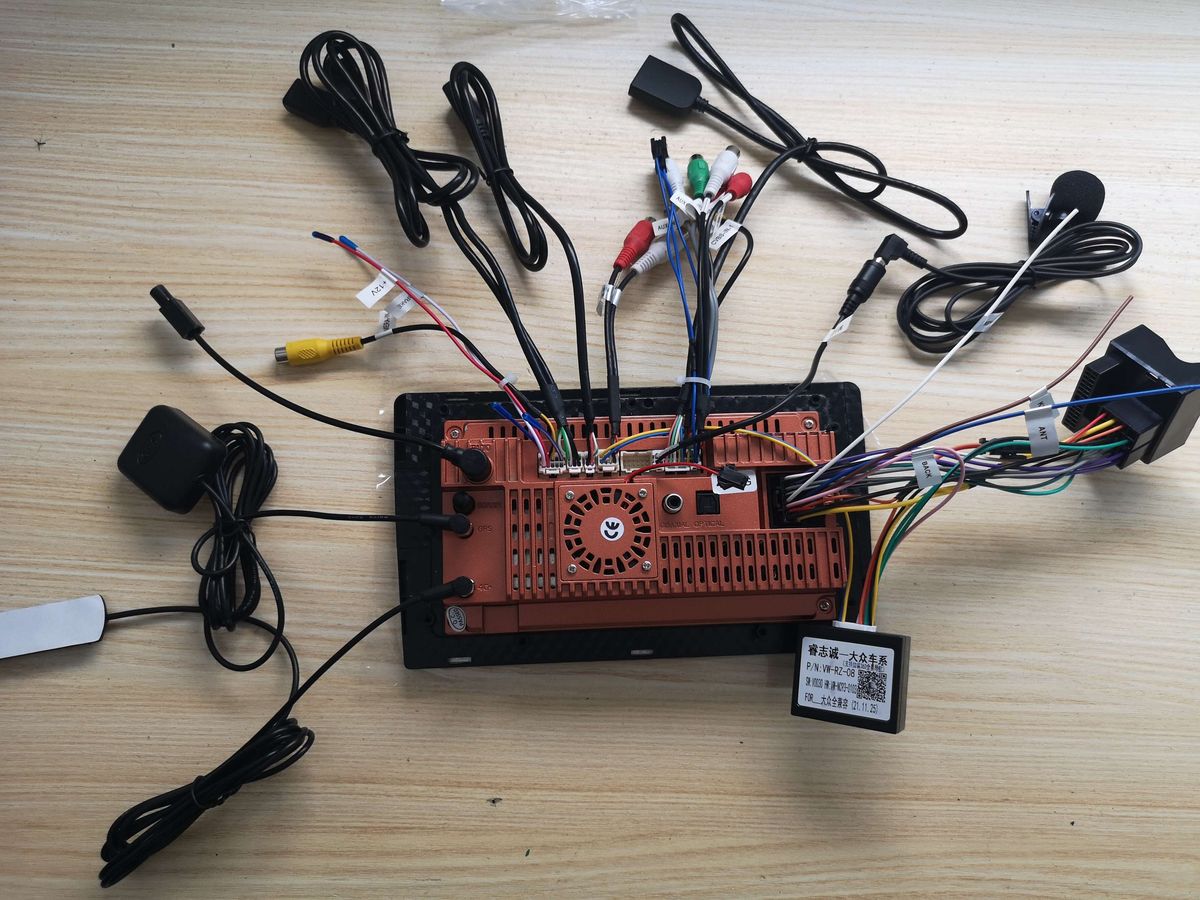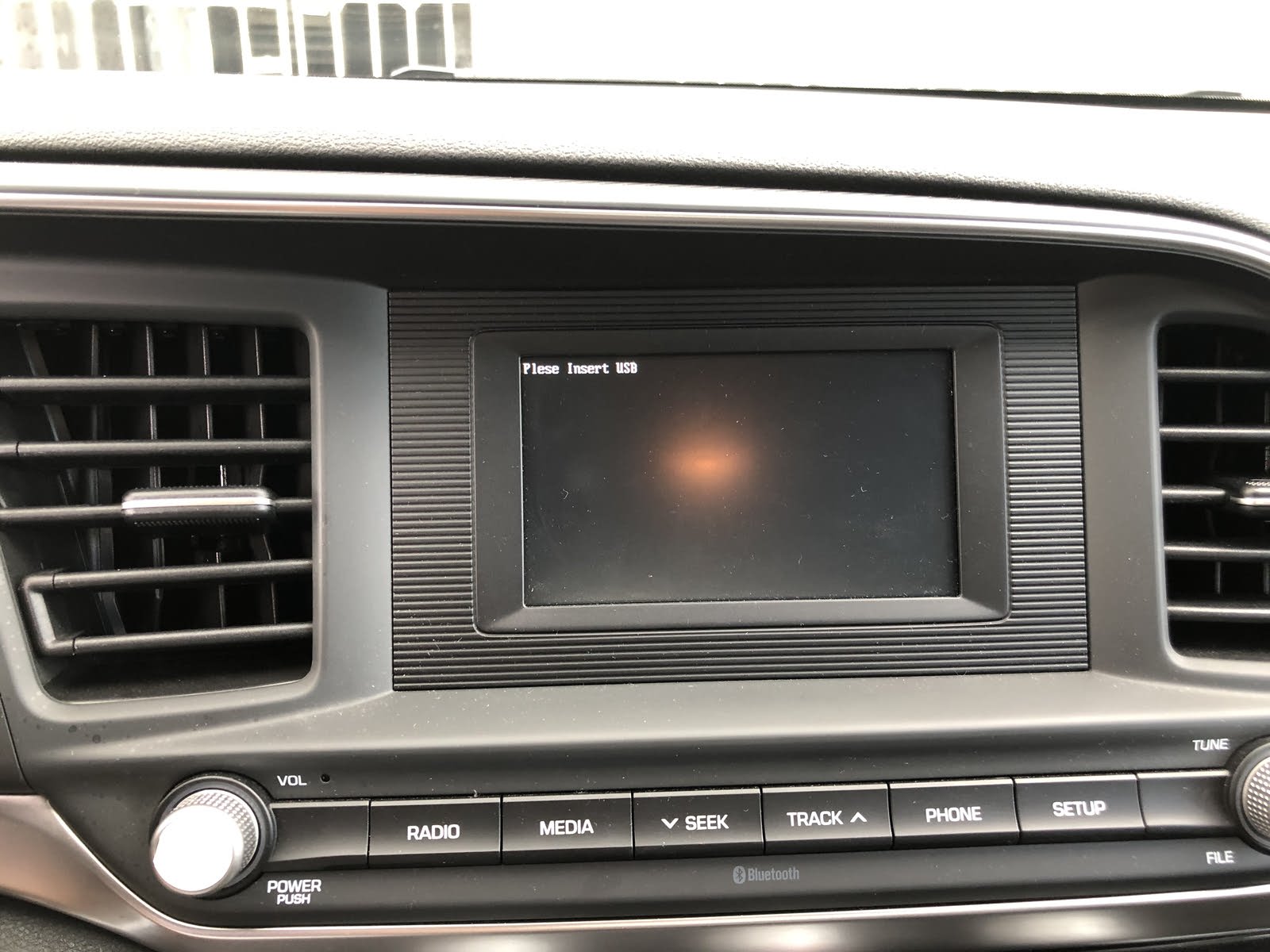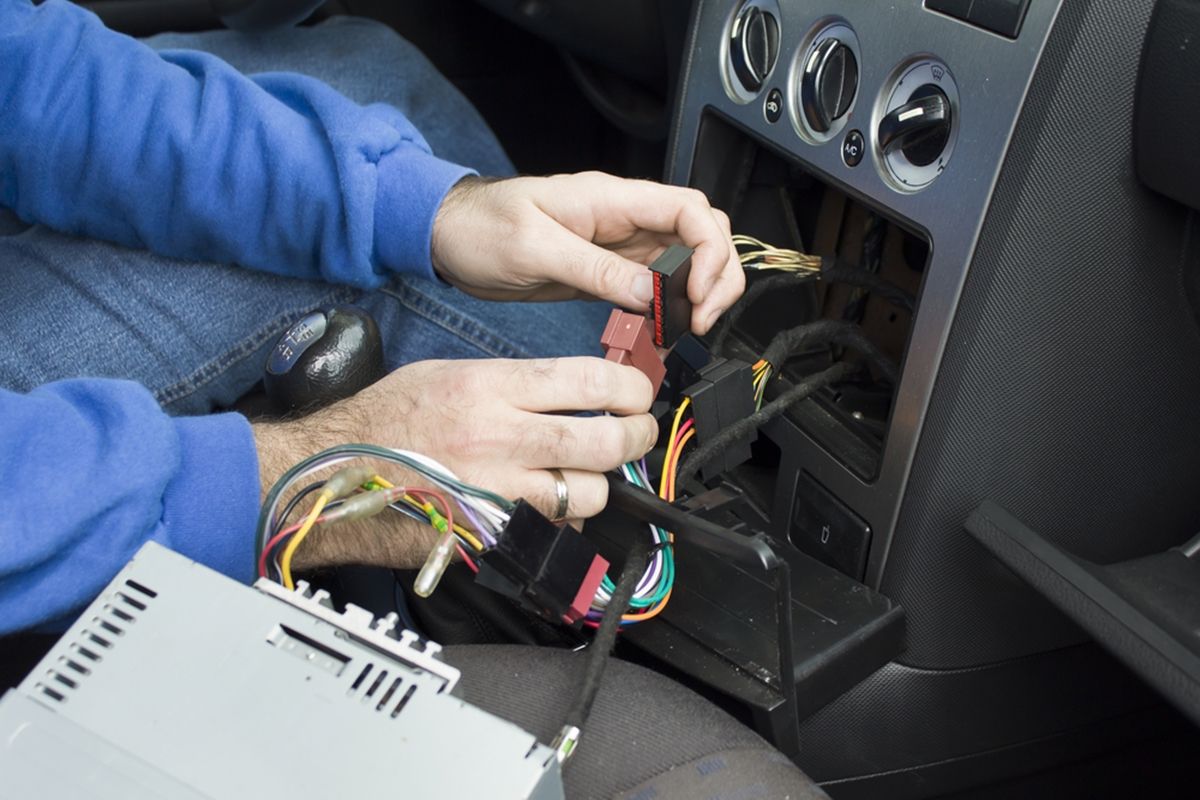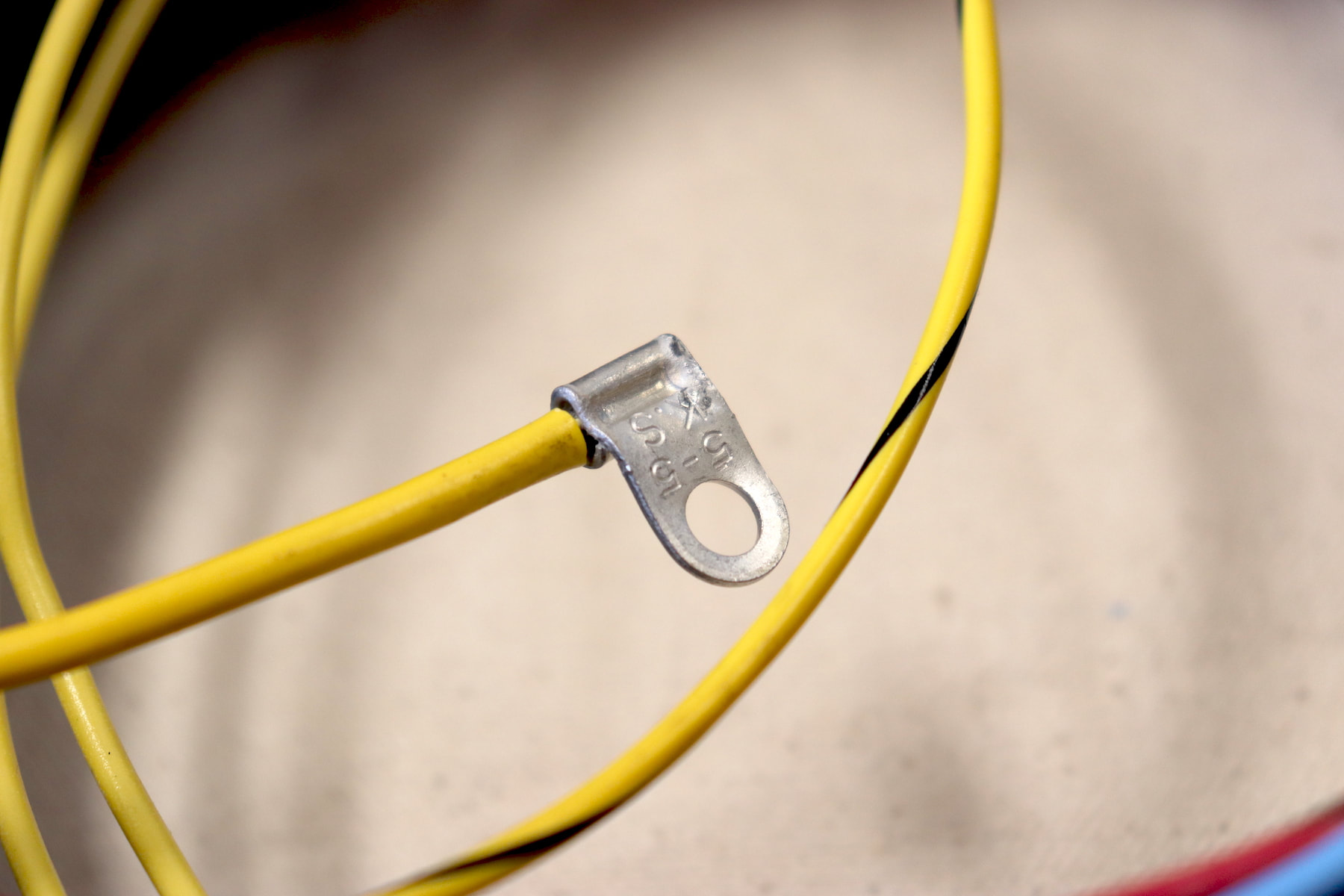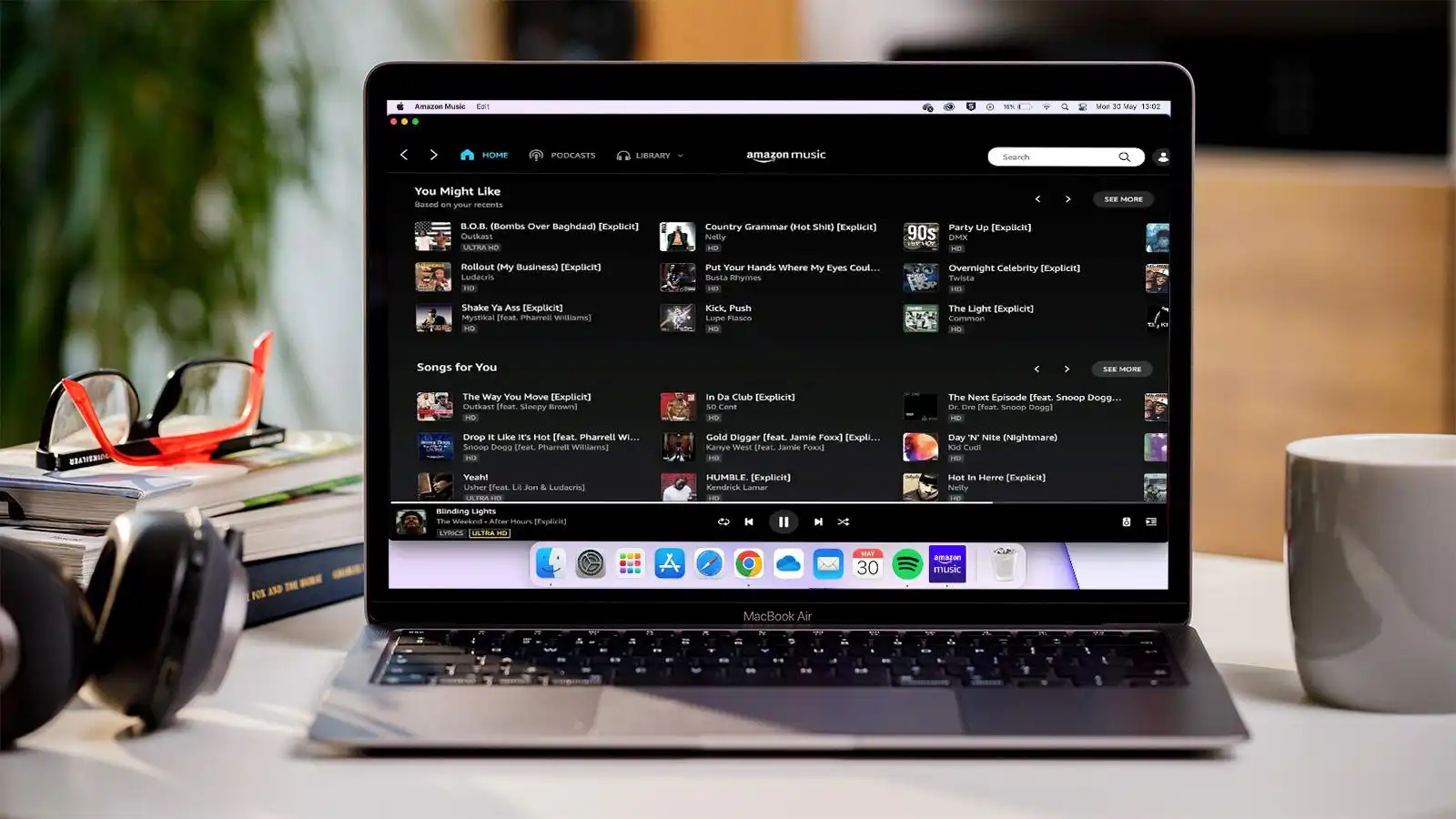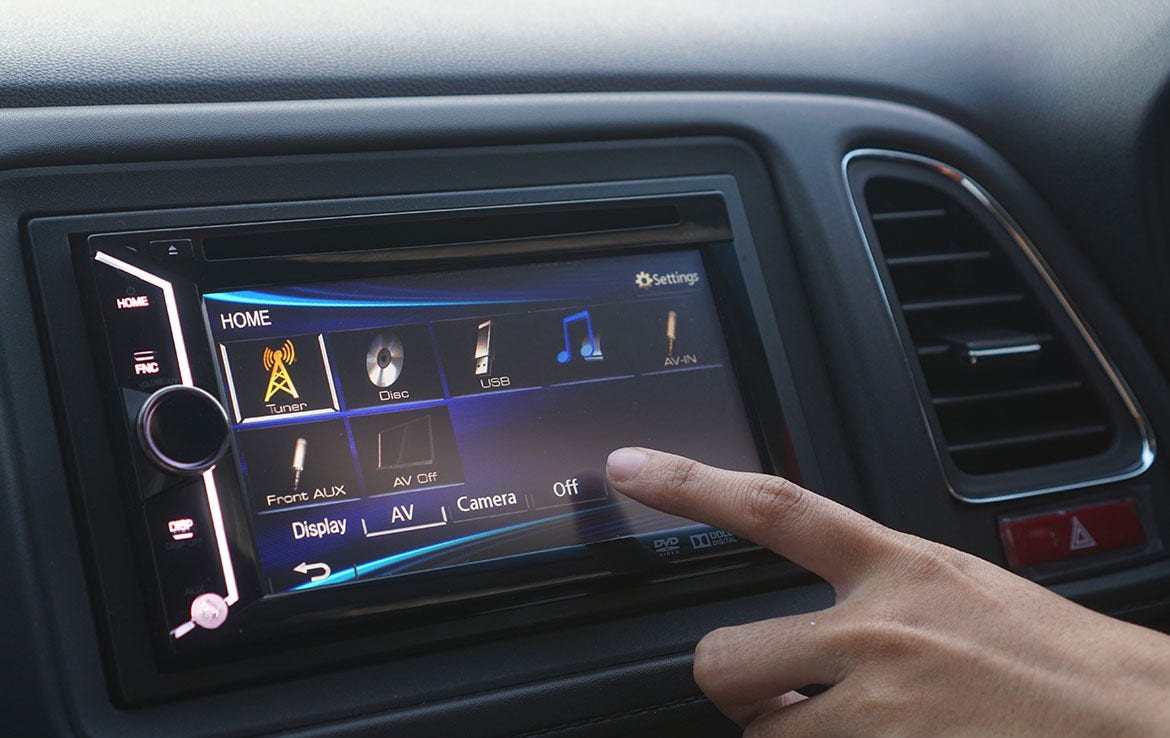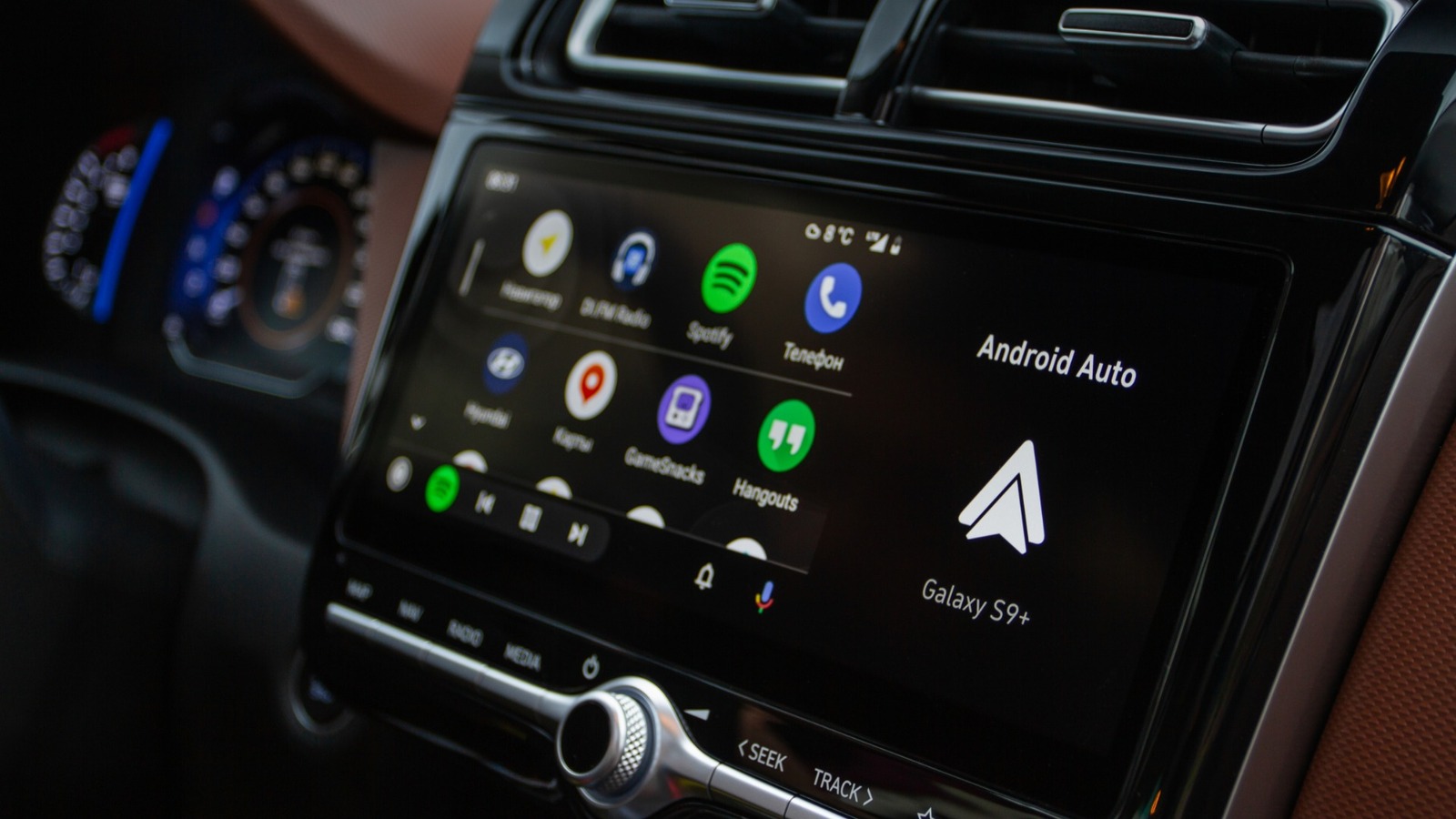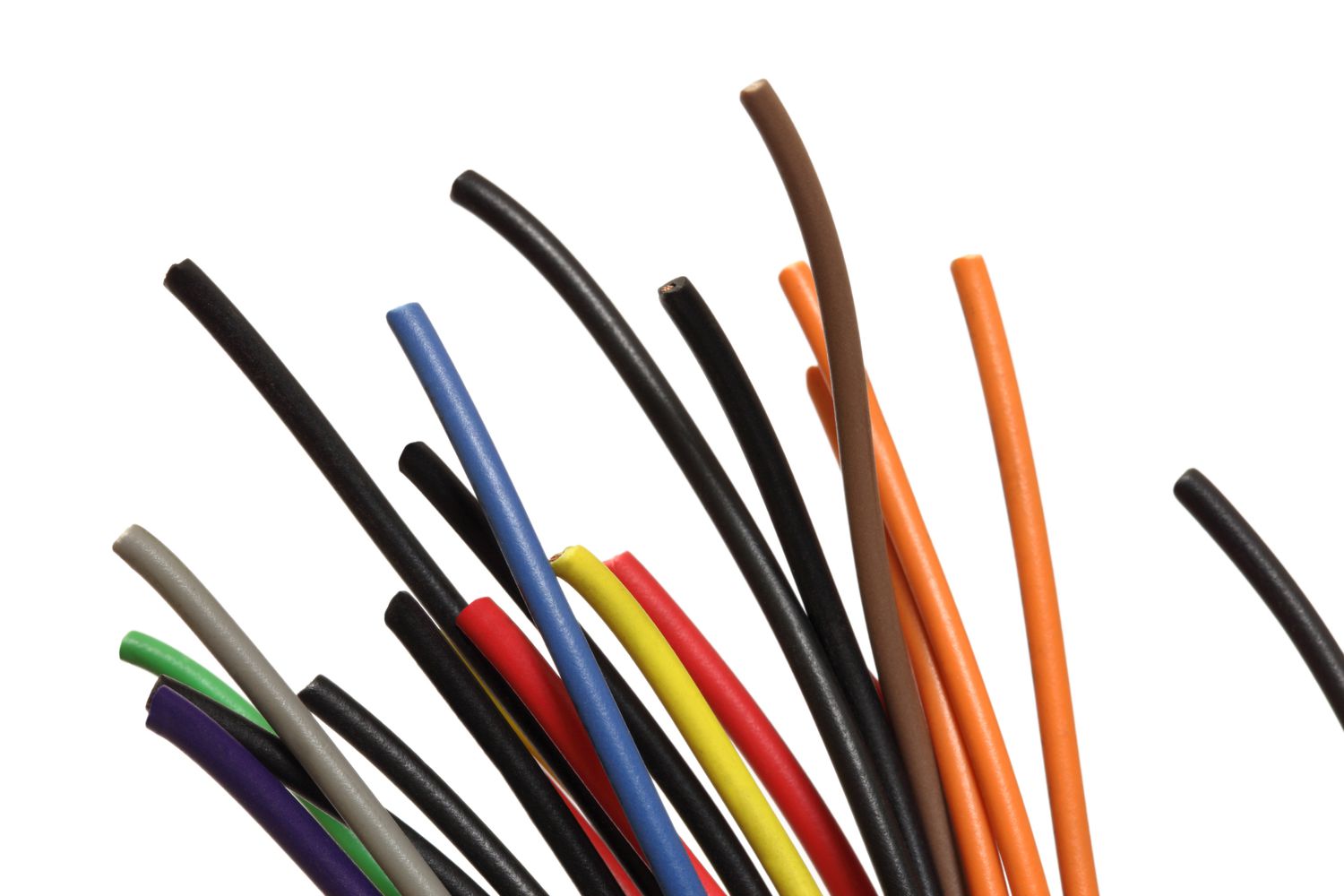Home>Production & Technology>Stereo>What Format Does USB Have To Be For Car Stereo?
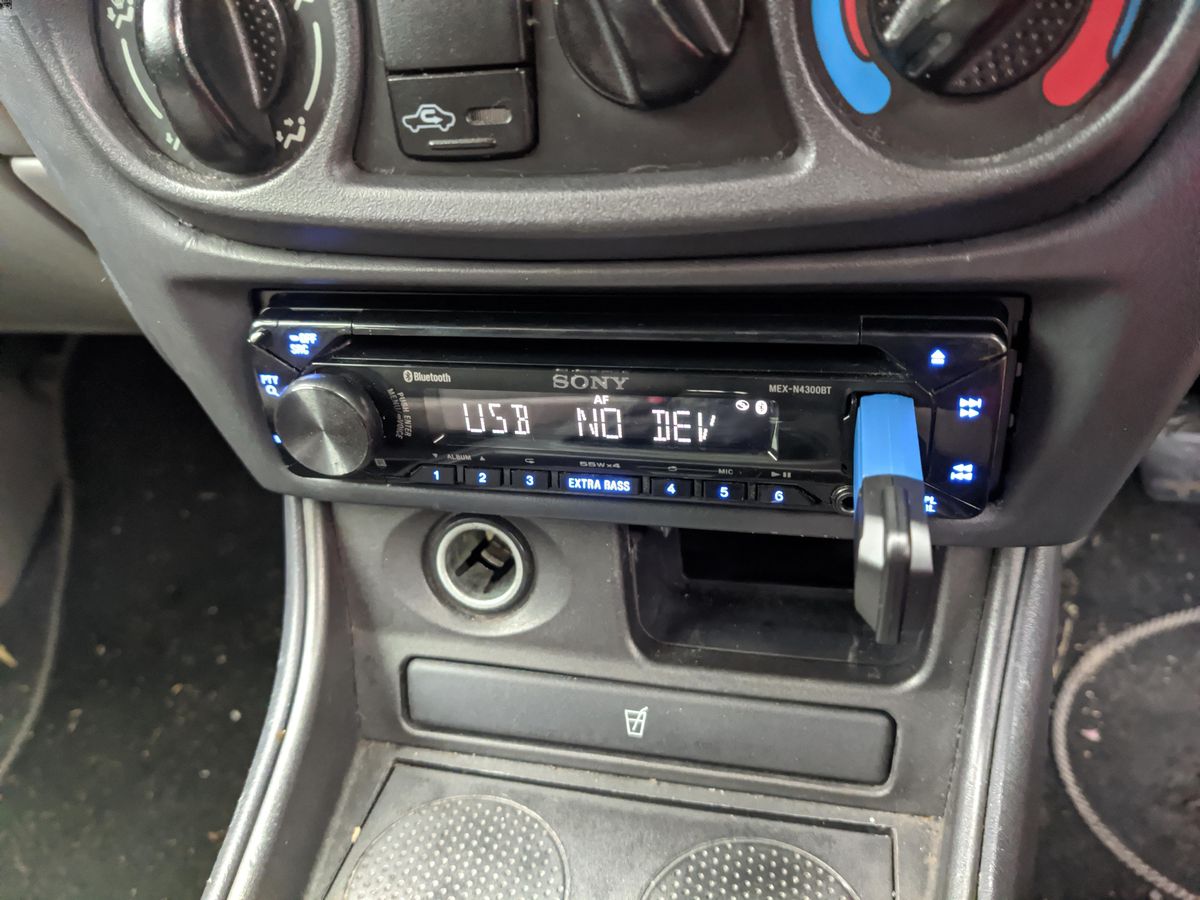

Stereo
What Format Does USB Have To Be For Car Stereo?
Published: November 18, 2023
Learn about the required USB format for car stereo systems. Find out how to optimize your audio experience and play your favorite tunes seamlessly.
(Many of the links in this article redirect to a specific reviewed product. Your purchase of these products through affiliate links helps to generate commission for AudioLover.com, at no extra cost. Learn more)
Table of Contents
Introduction
With the advancements in technology, car stereos have evolved beyond traditional CD and cassette players. Nowadays, many car audio systems come equipped with USB ports, allowing drivers to easily connect their devices and enjoy their favorite music on the go. However, not all USB formats are compatible with car stereos, which can be confusing for users.
In this article, we will explore the different USB formats that are compatible with car stereos and help you understand which format works best for your audio needs. Whether you’re looking to play music from a USB drive or connect your smartphone or tablet to your car stereo, having the right USB format is crucial for a seamless and enjoyable listening experience.
USB compatibility is essential because it determines whether your car stereo can read and play the files stored on your USB device. Using an incompatible USB format can result in errors, such as the stereo not recognizing the files or being unable to play them. To avoid these frustrations, it’s crucial to understand the different USB formats and choose the one that works best for your car stereo.
So, let’s delve into the world of USB formats for car stereos and find out which one suits your needs!
Understanding USB Compatibility
Before we delve into the specific USB formats for car stereos, let’s first understand the concept of USB compatibility. USB compatibility refers to the ability of a car stereo to read and function with different USB formats. Just like computers and other media devices, car stereos have specific requirements when it comes to the format of the USB drive.
One significant factor in USB compatibility is the file system, which dictates how data is organized and stored on the USB drive. The most common file systems used in USB drives are FAT32, exFAT, and NTFS. Each of these file systems has its own advantages and limitations, which we will discuss in detail in the following sections.
Another aspect of USB compatibility is the supported audio file formats. Car stereos typically support popular audio file formats such as MP3, WMA, AAC, and WAV. It’s essential to ensure that your audio files are in a compatible format to ensure they can be played by your car stereo.
Lastly, some car stereos have specific requirements regarding the power output of the USB port. While most USB devices draw power from the car stereo, certain devices might require a higher power output. It’s important to check if your car stereo can meet the power requirements of your USB device to ensure proper functionality.
Understanding USB compatibility is crucial because it allows you to make informed decisions when selecting a USB format for your car stereo. By choosing the right USB format and ensuring compatibility with your car stereo, you can enjoy uninterrupted audio playback and avoid frustration.
USB Formats for Car Stereos
When it comes to USB formats for car stereos, there are three widely used file systems: FAT32, exFAT, and NTFS. Let’s take a closer look at each of these formats:
- FAT32: The FAT32 file system is the most widely supported format across various devices, including car stereos. It is compatible with both Windows and macOS operating systems and supports file sizes up to 4GB. FAT32 is relatively easy to use and can be read by almost all car stereos without any issues. However, one limitation of FAT32 is that it cannot store individual files larger than 4GB. If your audio files exceed this size, you will need to convert the USB drive to a different format.
- exFAT: Designed as an upgrade to FAT32, exFAT is a file system that supports larger file sizes and allows for easy compatibility across different platforms. It is compatible with both Windows and macOS operating systems and does not have the 4GB file size limitation of FAT32. Many newer car stereos support exFAT, making it a convenient choice for those who have large audio files or want to store other media along with their music. However, it’s worth noting that some older car stereos might not support exFAT, so it’s essential to check the compatibility beforehand.
- NTFS: NTFS (New Technology File System) is a file system primarily used in Windows operating systems. While it offers advanced features and improved security, car stereos with USB capability may not always support this format. Some car stereos that support NTFS might have limitations in terms of file size or the number of files that can be stored. Therefore, it is important to confirm NTFS compatibility with your car stereo before using this format.
These are the main USB formats you will encounter when it comes to car stereos. While FAT32 is the most common and widely supported format, exFAT offers greater flexibility in terms of file size and compatibility across different platforms. NTFS, on the other hand, is less commonly supported by car stereos, but may still be an option depending on your specific device.
Now that we understand the USB formats available, let’s explore how you can choose the right format for your car stereo in the next section.
FAT32 File System
The FAT32 (File Allocation Table 32) file system is one of the most widely used formats for USB drives, including those used in car stereos. It is compatible with various operating systems, including Windows and macOS, which makes it a popular choice for many users.
One of the main advantages of FAT32 is its broad compatibility. It can be read by almost all car stereos, ensuring that your music files will be recognized and played without any issues. Additionally, FAT32 supports a wide range of audio file formats, such as MP3, WMA, AAC, and WAV, allowing you to enjoy your favorite music without the need for conversion or compatibility concerns.
Another benefit of FAT32 is its simplicity. It is relatively easy to format a USB drive to the FAT32 file system, and the process can be done through the operating system’s built-in tools. This user-friendly feature makes it accessible to users with varying levels of technical expertise.
However, it’s important to keep in mind that FAT32 has limitations. One significant limitation is its maximum file size of 4GB. If you have audio files that exceed this size, they will need to be split into smaller files or converted to a different format compatible with larger file sizes. Additionally, FAT32’s age and limitations may not be suitable for users who require more advanced features or have specific requirements for their music storage.
In summary, the FAT32 file system is a commonly supported USB format for car stereos. Its compatibility with various operating systems and support for popular audio file formats make it a convenient choice for most users. However, the 4GB file size limitation may require some adjustments in managing larger audio files.
exFAT File System
The exFAT (Extended File Allocation Table) file system is an upgraded version of the older FAT32 format. It was introduced by Microsoft to address some of the limitations of FAT32, particularly in terms of file size and compatibility across different platforms.
One of the main advantages of exFAT is its support for larger file sizes. Unlike FAT32, which has a maximum file size limit of 4GB, exFAT allows you to store individual files larger than 4GB. This is especially beneficial if you have high-quality audio files or want to store other multimedia files alongside your music.
Another significant feature of exFAT is its cross-platform compatibility. It can be read and written by both Windows and macOS operating systems, making it a convenient choice for users who switch between different platforms. Additionally, many modern car stereos support exFAT, ensuring that your music files will be recognized and played without any issues.
Furthermore, exFAT offers a simple and easy-to-use file system. It retains the simplicity of FAT32, making it accessible to users of all technical skill levels. Formatting a USB drive to exFAT can be done through the operating system’s built-in tools, similar to formatting to FAT32.
However, it’s worth noting that not all car stereos support the exFAT format. Some older or more basic models may not be compatible, so it’s crucial to check the specifications of your car stereo to ensure exFAT support. If your car stereo does not support exFAT, you may need to consider using the FAT32 format instead.
In summary, the exFAT file system provides compatibility with larger file sizes and offers cross-platform support between Windows and macOS. It is a convenient choice for users who have high-quality audio files or want to store multimedia alongside their music. However, compatibility with car stereos varies, and it’s essential to ensure that your car stereo supports exFAT before using this format.
NTFS File System
The NTFS (New Technology File System) is a file system primarily used by Windows operating systems. While it offers advanced features and improved security, it may not be as widely supported by car stereos compared to the FAT32 and exFAT formats.
One of the significant advantages of NTFS is its advanced capabilities. It supports features like file compression, encryption, and file permissions, making it ideal for users who require enhanced data protection and management. NTFS also provides better error detection and recovery, ensuring the integrity of your files.
Another benefit of NTFS is its ability to handle large file sizes and storage capacities. With NTFS, you can store individual files larger than 4GB, which can be beneficial if you have high-resolution audio files or videos. Additionally, NTFS supports large storage devices, allowing you to use USB drives with capacities greater than 2TB.
However, it’s important to note that not all car stereos support the NTFS format. Some car stereo systems may have limitations in terms of file size or the number of files that can be stored. Therefore, it’s crucial to check the specifications and compatibility of your car stereo before using NTFS.
When it comes to compatibility with other operating systems, NTFS support can be limited. While modern versions of macOS are capable of reading NTFS drives, write access may require third-party software. This can be a consideration if you plan on using the USB drive with both Windows and macOS systems.
In summary, the NTFS file system offers advanced features, improved security, and support for large file sizes and storage capacities. However, compatibility with car stereos may vary, and it’s important to ensure that your car stereo supports NTFS before using this format. Additionally, compatibility with other operating systems, such as macOS, may require additional software or configurations.
Choosing the Right USB Format
Now that we have explored the different USB formats available for car stereos, the next step is to choose the right format for your specific needs. Here are some factors to consider when making your decision:
- Compatibility: The most crucial aspect is ensuring compatibility between the USB format and your car stereo. Check the specifications of your car stereo to see which formats it supports. While FAT32 is the most commonly supported format, newer car stereos may also support exFAT. NTFS compatibility can be limited, so it’s essential to double-check before using this format.
- File Size: Consider the size of your audio files. If you have files larger than 4GB, you may need to use exFAT or NTFS to accommodate them. However, if your audio files are within the 4GB limit, FAT32 should suffice.
- Cross-platform Compatibility: If you frequently switch between Windows and macOS systems and want seamless file transfer between the two, consider using exFAT. Both operating systems offer native support for exFAT, making it a convenient choice for users who use multiple platforms.
- Additional Features: If you require advanced features like file compression, encryption, or file permissions, then NTFS may be a suitable choice. However, keep in mind the limited compatibility of NTFS with car stereos and other platforms.
- User-Friendliness: Consider the ease of use and formatting process for each file system. FAT32 and exFAT are relatively straightforward and can be formatted through the operating system’s built-in tools. NTFS may require additional steps or third-party software for formatting.
Ultimately, the right USB format depends on your specific needs and the compatibility of your car stereo. If you are unsure, it is recommended to go with FAT32, as it is widely supported and offers good compatibility across different devices.
Remember to back up your files before formatting your USB drive, as formatting will erase all existing data. It’s also a good idea to test your USB drive with your car stereo before relying on it for long drives or important events.
By considering compatibility, file size, cross-platform compatibility, additional features, and user-friendliness, you can make an informed decision and choose the right USB format for your car stereo.
Conclusion
Choosing the correct USB format for your car stereo is essential to ensure seamless playback of your favorite music while on the road. Understanding the different USB formats and their compatibility with your car stereo can save you from frustration and ensure an enjoyable listening experience.
In this article, we explored the three main USB formats for car stereos: FAT32, exFAT, and NTFS. FAT32 is the most widely supported format, offering good compatibility with various car stereos and operating systems. While it has a file size limitation of 4GB, it remains a popular choice due to its simplicity and broad support.
ExFAT provides a significant advantage over FAT32 with its support for larger file sizes and cross-platform compatibility. It allows you to store individual files larger than 4GB and is compatible with both Windows and macOS systems, making it convenient for users who switch between different platforms.
NTFS offers advanced features, such as file compression, encryption, and file permissions. While it supports large file sizes and storage capacities, its compatibility with car stereos can be limited. NTFS may be a preferable option for users who require enhanced data protection and management, but it’s important to ensure compatibility with the car stereo before using this format.
When choosing the right USB format for your car stereo, consider factors such as compatibility, file size, cross-platform compatibility, additional features, and user-friendliness. It’s also important to keep in mind any limitations of your car stereo in terms of supported formats and file sizes.
Remember to back up your files before formatting your USB drive, as formatting will erase all existing data. Test your USB drive with your car stereo to ensure proper functionality before going on long drives or important trips.
By making an informed decision and selecting the appropriate USB format, you can enjoy a seamless and enjoyable music experience during your journeys. Whether you choose FAT32, exFAT, or NTFS, the right USB format will ensure that you can play your favorite tunes effortlessly while on the road.

